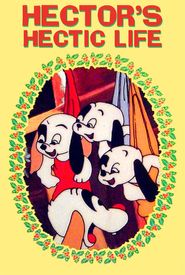Vladimir 'Bill' Tytla was born in October 1904 in Yonkers, New York, to Ukrainian immigrant parents. His family, particularly his parents, strongly supported his artistic inclinations from a young age.
As a nine-year-old, Tytla was mesmerized by a screening of Gertie the Dinosaur (1914),a creation by Winsor McCay. This sparked his passion for animation, and he began to study art briefly at the New York Evening School of Industrial Design.
In 1920, Tytla was hired by Paramount animations to write title cards, earning him the nickname "Tytla the Titler". He went on to work on Mutt & Jeff cartoons for the Barré-Bowers Studio and Paul Terry in Greenwich Village, bringing to life Aesop's Fables.
In 1928, Tytla traveled to Europe, where he spent 18 months studying sculpture under Charles Despiau and painting, which was heavily influenced by Pieter Bruegel the Elder. Upon his return to New York, he joined the Disney Organisation in 1934, becoming a renowned animator and earning the nickname "The Michelangelo of Animation".
Tytla's greatest strengths were his intuitive flair for character animation and his ability to imbue his creations with feeling. He worked on several classic Disney films, including Snow White and the Seven Dwarfs (1937),Pinocchio (1940),Fantasia (1940),Saludos Amigos (1942),and Dumbo (1941).
However, Tytla's career was marked by a strike in 1941, which led to bitter acrimony between management and union supporters. He left Disney in 1943 and returned to his old job at Terrytoons, where he became dissatisfied with modernist trends and methodologies in animation.
In the 1950s, Tytla worked on television commercials and briefly headed his own production company, which failed due to his lack of business acumen. The last few years of his life were marked by ill-health, including blindness in his left eye. He died on his Connecticut dairy farm in December 1968.
Throughout his career, Tytla's contributions to animation were indelible, and he believed that the key ingredient to his success was "the feeling and vitality you get into the work".























